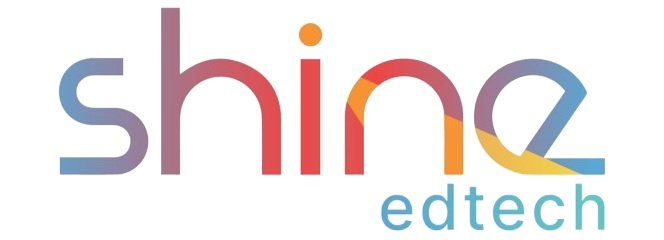Project SHINE is innovative.
There are 4 key interlinked aspects of Project SHINE that aim to disrupt the existing system.
1. Early Intervention Approach
Focus on pre-school education, so that inequalities are addressed further upstream.
By offering high-quality pre-school education materials in digital formats that are custom-built to facilitate parental involvement at a distance, SHINE hopes to address the issues above and improve school readiness levels in cognitive and language skills in this vulnerable population.
2. Scalable Education App
Involving technology so that the programme can be scaled and adapted to diverse communities, and access can be increased
The main features of the learning platform are as follows:
App-based with Offline Access. The use of an app allows anyone with a smartphone or device to be part of the education programme. Once downloaded, children will also be able to access lessons without internet connection. This extends access to families who do have access to or stable wifi
Smart Learning Management System. Following a diagnostic activity, children will be able to enroll in units that are appropriate to their current ability level. As they progress along the lessons, parents/guardians will receive feedback on the child’s progress and suggestions to facilitate learning based on past data.
Interactive. With the help of their families, children will be able to capture relevant activities (e.g., through photo, audio or video recording) and upload it on the platform. Apart from tracking progress, parents will also be able to comment on these to encourage and stay connected to their children.
Analytics. Data will be collected based on the children’s activities on the platform, in order to measure learning, provide customized feedback to parents and children, and constantly improve the platform.
3. Holistic Educational Curriculum
A holistic educational curriculum that is tailored to the needs and learning gaps of children. Fifty years of research in ECD has highlighted the central influence that parenting attitudes and behaviours have on children’s development. During the preschool years (ages 3-5), the ways that parents interact with their children and the relationships they form with their children’s caregivers and teachers play an important role in supporting a child’s social-emotional, cognitive, and physical readiness for school. Project SHINE sets out a curriculum across 3 full years (beginner, intermediate, advanced), allowing the child to start at the relevant year according to his/her current ability level. Each year is also broken down into monthly thematic units that are intentionally sequenced for children to first build confidence in themselves and then learn about connections to others around them and the environment, a perspective of the broader world, and finally how they can make a difference where they are. Relevant sub-topics for each theme also allow children to use language in context to encourage practice in their everyday settings (e.g., my emotions; plants in my hometown; relating to the world with my senses). The activities draw on successful early childhood strategies that have been tested in Singapore by early childhood experts and experienced practitioners. These include learning through music and storytelling, games and other interactive activities. While the material is housed in the education app, lessons will be conducted in a blended format, i.e., there will be bite-sized videos or activities that children will do on the app, followed by other physical activities, with guidance from an adult or older child. This is also to ensure that children do not spend too much time on their devices.
Project SHINE sets out a curriculum across 3 full years (beginner, intermediate, advanced), allowing the child to start at the relevant year according to his/her current ability level. Each year is also broken down into monthly thematic units that are intentionally sequenced for children to first build confidence in themselves, and then learn about connections to others around them and the environment, a perspective of the broader world, and finally how they can make a difference where they are. Relevant sub-topics for each theme also allow children to use language in context to encourage practice in their everyday settings (e.g., my emotions; plants in my hometown; relating to the world with my senses).
The activities draw on successful early childhood strategies that have been tested in Singapore by early childhood experts and experienced practitioners. These include learning through music and storytelling, games and other interactive activities. While the material is housed in the education app, lessons will be conducted in a blended format, i.e., there will be bite-sized videos or activities that children will do on the app, followed by other physical activities, with guidance from an adult or older child. This is also to ensure that children do not spend too much time on their devices.
4. Parental Involvement
Integrates involvement of both the migrant parent and parent at home in their child’s education via a digital platform. One of the most distinctive aspects of Project SHINE is its focus on integrating parental involvement in a culturally appropriate, practically feasible way parental engagement in their children’s upbringing and education is thus crucial for a child’s holistic development. Research has also shown that low engagement can be overcome by encouraging interactions and exposure to help increase their knowledge and hence, the effectiveness of involvement at home (Hill & Tyson, 2009). These challenges are addressed through the app. As part of the child’s lessons on the platform, parents will have simple tasks to complete with the child. They will also be able to track their child’s learning progress and be given pointers on what they can work on with their child. Further, the platform is built for interactivity, so that parents are able to respond directly to their child’s work and encourage them, even if they are physically separated. This helps the parent who is based overseas to stay intentionally connected to their child and foster the relationship.
